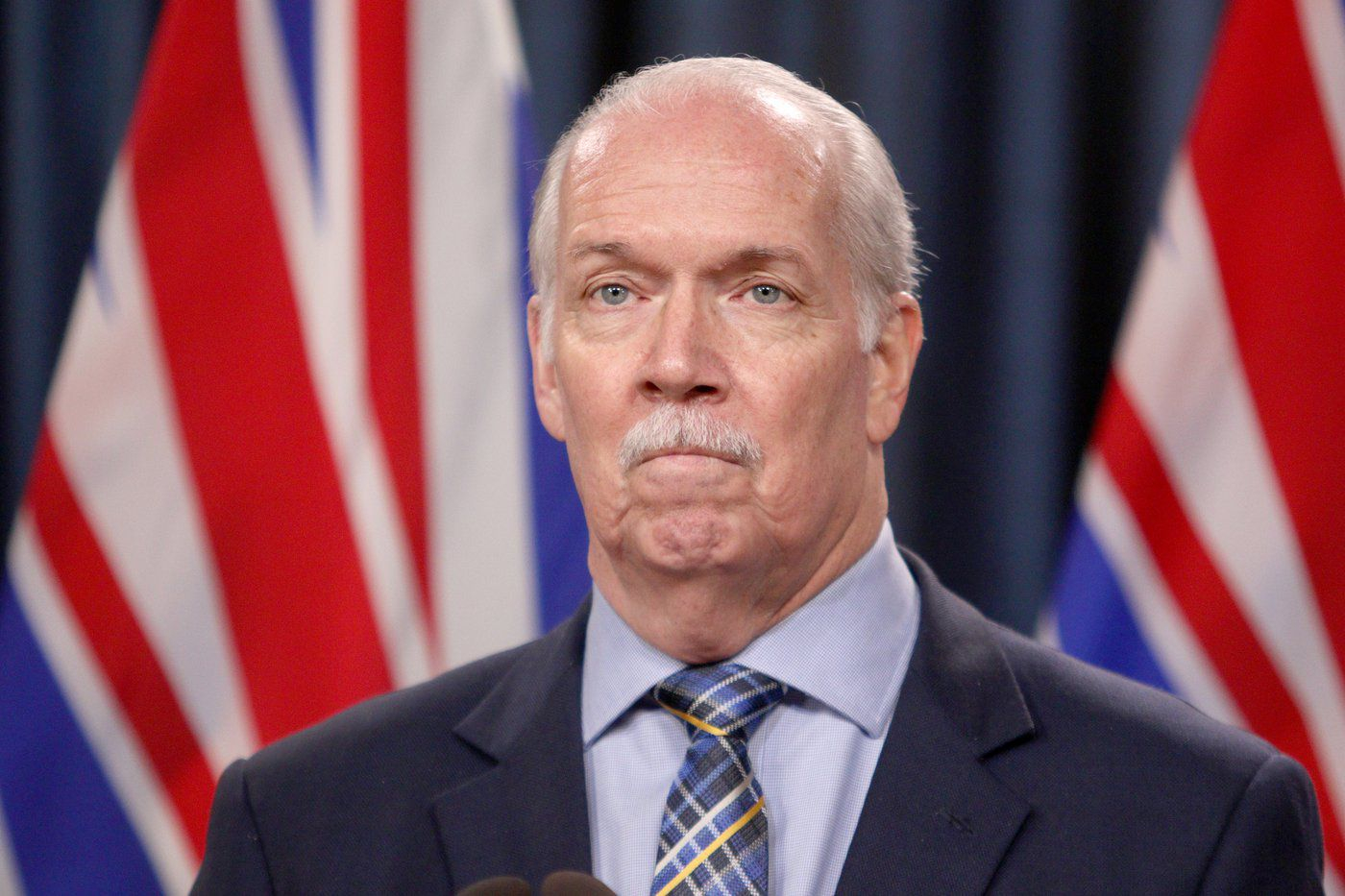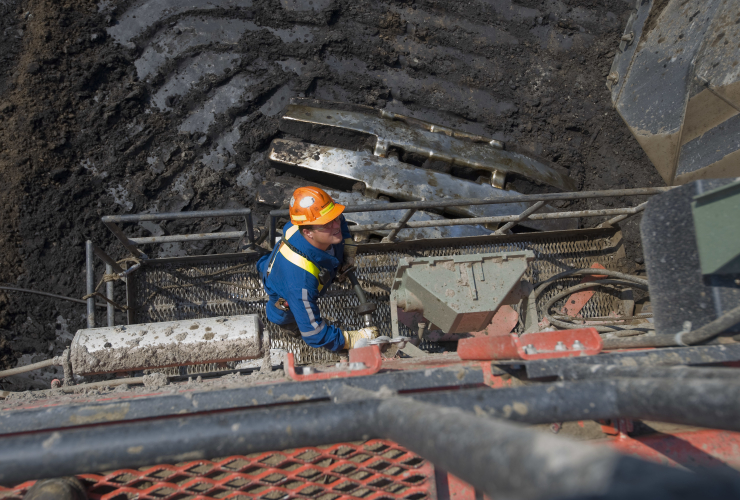British Columbia introduced an Indigenous reconciliation plan Wednesday that sets goals toward implementing its law on the United Nations Declaration on the Rights of Indigenous Peoples.
During a ceremony at the legislature before the bill was tabled in the legislature, Premier John Horgan said the five-year plan represents a mutual commitment to work together to achieve its 89 goals.
"We have a long way to go," he said. "Now here we are putting down the road map, preparing to take the journey together. We must learn from our past: the sorrow and the joy."
Indigenous leaders said the plan marks the start of what must become concrete action to create a better future.
"The action plan is really about the meat on the bones," said Cheryl Casimer, a member of the First Nations Summit's political executive. "We also need to do some heavy lifting."
In 2019, B.C. was the first jurisdiction in North America to adopt the declaration, which requires governments to obtain free, prior and informed consent before taking actions that affect Indigenous Peoples and their lands.
It required the government to align its laws with the declaration and a draft implementation plan was released last summer. The act also stipulates that alignment must happen "in consultation and co-operation" with Indigenous Peoples.
"The action plan will serve as the vehicle to drive transformational change across government," said Murray Rankin, B.C.'s Indigenous relations and reconciliation minister.
He said the plan's goal of ensuring Indigenous people in B.C. achieve their full potential will ultimately "realize the full potential of our province."
Rankin called the plan a "global beacon of peace and reconciliation," saying B.C. is the first jurisdiction in the world to introduce an Indigenous reconciliation plan, which will not be allowed to "gather dust."
He said the timeline to achieve the goals could take "a generation" for some, while others have already been achieved. But overall, he said large steps will be taken over the next five years.
"It's focused on deliverables," he said. "It's all about accountability."
The plan follows four central themes: self-determination and the right of self-government; title and rights of Indigenous Peoples; ending Indigenous-specific racism; and social, cultural and economic well-being.
The goals include establishing a secretariat to help the government ensure legislation is consistent with the declaration, conducting an Indigenous-specific racism review in the province's education system, and reviewing the process for naming municipalities and regional districts. The report also said the government will aim to train and hire more Indigenous teachers for the public school system.
"The action plan is meant to help everyone who lives in B.C. understand the importance of reconciliation and how it will help the province achieve its greatest social, cultural and economic potential," says the report.
Chief Jerry Jack, who spoke on behalf of the B.C. Assembly of First Nations, said the plan will improve the lives of Indigenous people.
"I don't want my grandkids to grow up in the struggles I've had to have to have our rights recognized," said Jack, who represents Vancouver Island's Mowachaht/Muchalaht First Nation and is also a former RCMP officer.
The Opposition Liberals supported the plan in the legislature.
"Today is a historic day for the province and our relationship with the First Peoples of this land," said Michael Lee, the party's Indigenous relations and reconciliation critic.
Adam Olsen, a Green member of the legislature who is Indigenous, said the government has taken a step forward on reconciliation but he had a reservation about the announcement.
"I'm wary this document will become another ready-made excuse why this government or future governments are acting or why they cannot act," he said.
This report by The Canadian Press was first published March 30, 2022.
Well if this is the case then
Well if this is the case then the BC government should drop it's dispute with The Nuchatlaht First Nation regarding Nootka Island. Dropping the challenge would be a powerful show of sincerity to reconciliation.




Comments